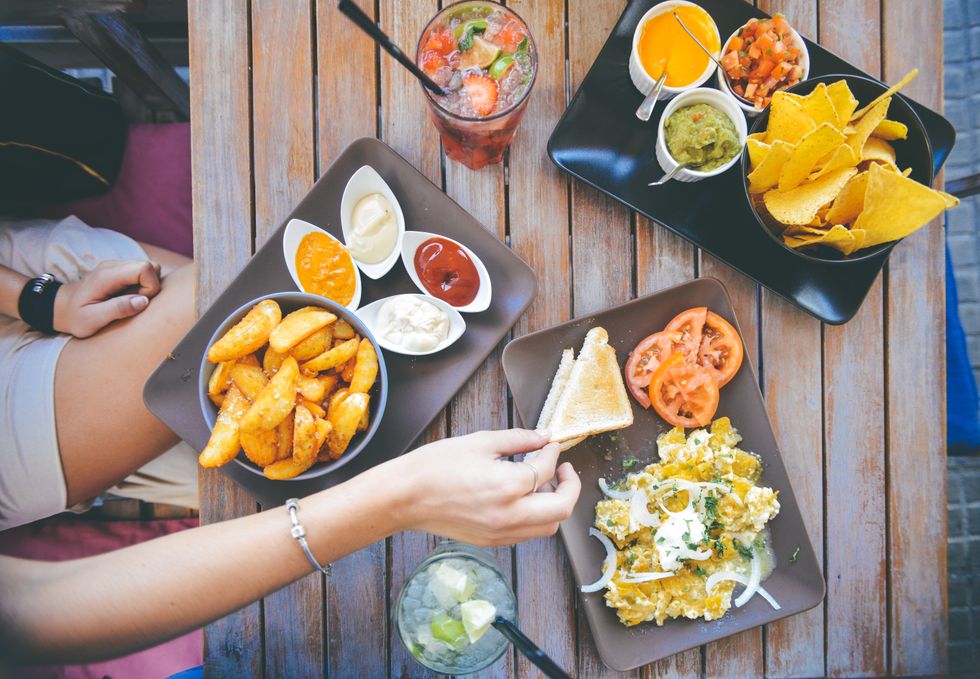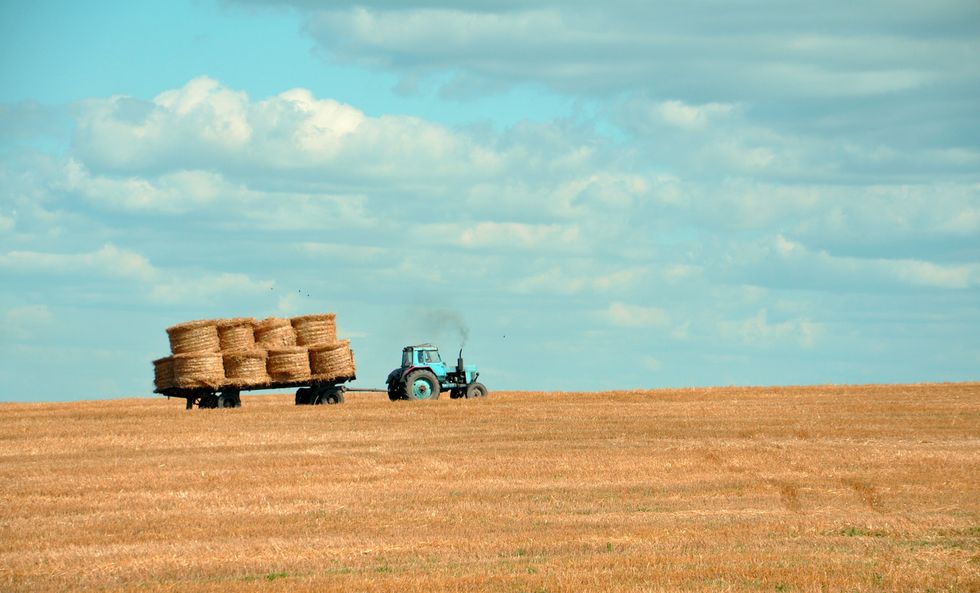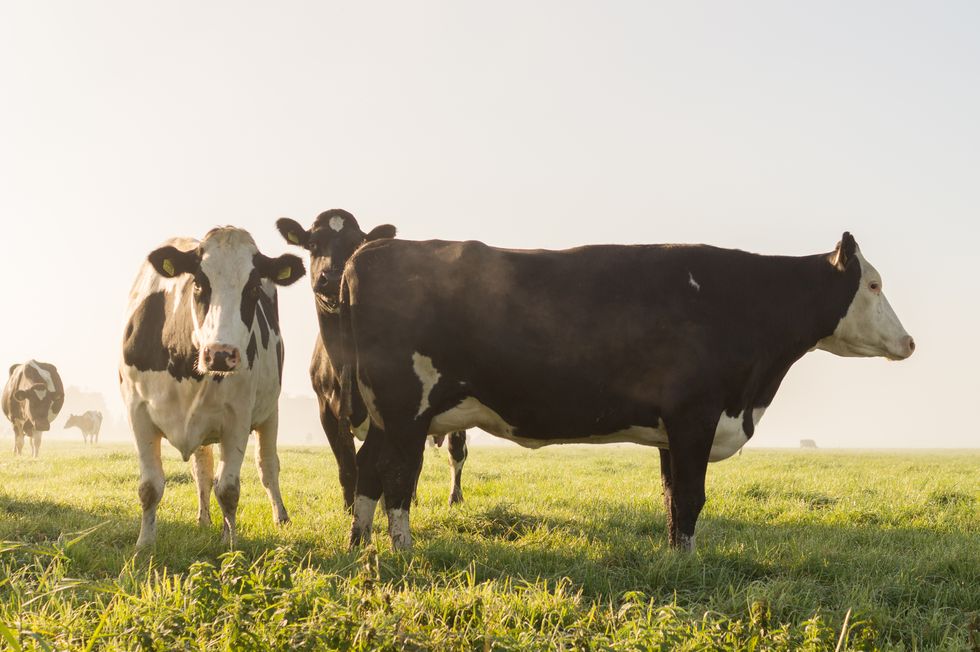You, your human body, is made up of many atoms fighting for your survival. As a mass made up of millions of atoms, we have to partake in a multitude of activities that secure our well-being. Eating is one of those ways in which our bodies are designed to stay alive. The neurons in our brain send signals out that tell us, “hey, I’m hungry.” And it is in that way that our body consumed food, broke down its many components and used those to become a greater mass than what it was when it was birthed however many years ago.
In the long scheme of things, the cliche, “you are what you eat” proves to be completely true.
But have you paid attention to what you eat? And by this I’m not saying you are that cheeseburger you snuck in over the weekend, or you are that fruity-tudy salad that has more colors on it that your living room rug.Think about it, what are you eating?
That question’s answer is much more than the components in which you can see; it goes beyond what is served to you on that porcelain plate. Take one step further and ask about the ethics behind what is on the plate.
Last week, a friend of mine brought this idea to me of animal cruelty in the food production business. He began to run with that thought; he took it back to the how of food production, the string of systems the food goes through until it gets to us, the consumer, and then he stopped.
You see, if food begins with the practice of cruelty, you are consuming cruelty. Moreover, you are comprised of cruelty.
This had me going. Animal cruelty is something we speak of so often, but how many people are researching it? More importantly, why are people not doing more research on it if they are consuming it?
ASPCA, a voice in the advocacy to end animal cruelty notes that “over 99% of farm animals in the U.S. are raised in factory farms, which focus on profit and efficiency at the expense of animal welfare.” This goes to show how the American culture also plays a huge influence in what we consume.
In an article about Tyson Foods and their production of chicken, the Cornucopia Institute highlights two key topics when analyzing the larger effects a food production company may have: The cost to their ethics and the cost to the environment.
When a company’s ethics are called into question, this is usually when an outsider is scrutinizing the physical treatment of the animals. As for the environment, these side effects can be seen on a much larger scale. If companies are not smart about their waste management and how the fumes they are producing are entering the environment, not only with nearby homes and towns be greatly affected by the aftermaths of this food production, but the animals themselves will take a nasty hit as well. And when animals are being drug into the line of those who were smeared with the mark of corruption in any form, including environmental, pretty soon people start to notice.
What this all has the possibility of leading to is the consumption of cruelty from the production arena all the way to the consumption that is occurring right at your dinner table.
As Americans, even though we may not realize it at times, our demand for fast production becomes so high that farmers are driven to extreme conditions to supply.
On the topic of chicken farming (the most demanded, most popular, meat in America), People for the Ethical Treatment of Animals (PETA) mention that “most factory-farmed animals have been genetically manipulated to grow larger or to produce more milk or eggs than they naturally would. Some chickens grow so unnaturally large that their legs cannot support their outsized bodies, and they suffer from starvation or dehydration when they can’t walk to reach food and water.”
If as a country we recognize this problem, what can we do to prevent the audacious acts of the food production factories and end our consumption of cruelty?
Buy Fair Trade Food Products:
By buying food items that are certified Fair Trade, you as a buyer are taking part in the initiative to help make the food industry a safer place, but the world a better place as well. The Fair Trade USA organization says “our rigorous social, environmental and economic standards work to promote safe, healthy working conditions, protect the environment, enable transparency, and empower communities to build strong, thriving businesses. When you choose products with the Fair Trade label, your day-to-day purchases can improve an entire community’s day-to-day lives.” By shopping Fair Trade, the products you buy can be trusted all the way down the line.
Raise Awareness:
By staying alert to the companies in your area who are involved with food production, you become more aware to their actions and have the ability to hold those factories accountable. If you see cruelty, report it. If you notice a weird, excess amount of fumes coming from the factory, report it. We are not meant to stay silent in the face of cruelty, especially against animals.
For Those Who Want the Challenge, Go Vegetarian:
This is a constant battle happening in our society. One of the main reasons this occurs is because of the cruelty seen behind the doors of food production factories. As more and more concern arises for the safety of these animals, a larger community of people have gotten behind this lifestyle of being a vegetarian. From the Vegetarian Resource Group website, “vegetarians do not eat meat, fish, and poultry. Vegans are vegetarians who abstain from eating or using all animal products, including milk, cheese, other dairy items, eggs, honey, wool, silk, or leather. Among the many reasons for being a vegetarian are health, environmental, and ethical concerns.”
We must understand what are consume but more importantly, where our consumption items are coming from. If what we are eating was raised or grown in an environment ingrained with cruelty and lack-of-empathy for the environment, I simply do not want to be supporting companies with those mentalities. Chose wisely when it comes to what you put in your body because after all, we were not meant to consume cruelty.






















